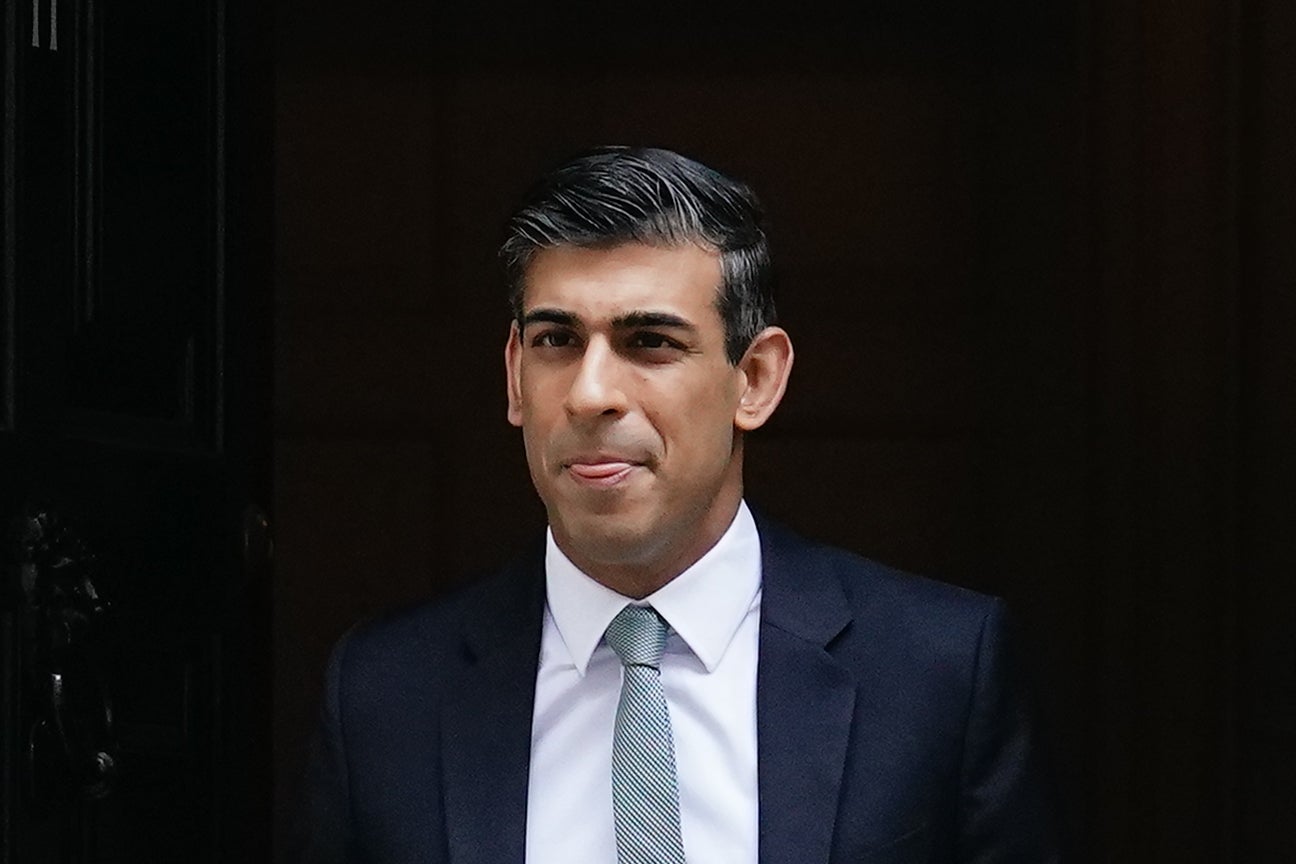Sunak warns of ‘challenging’ economic picture ahead of spring statement
The Chancellor faces a combination of rising prices and economic uncertainty as he addresses MPs.

Your support helps us to tell the story
From reproductive rights to climate change to Big Tech, The Independent is on the ground when the story is developing. Whether it's investigating the financials of Elon Musk's pro-Trump PAC or producing our latest documentary, 'The A Word', which shines a light on the American women fighting for reproductive rights, we know how important it is to parse out the facts from the messaging.
At such a critical moment in US history, we need reporters on the ground. Your donation allows us to keep sending journalists to speak to both sides of the story.
The Independent is trusted by Americans across the entire political spectrum. And unlike many other quality news outlets, we choose not to lock Americans out of our reporting and analysis with paywalls. We believe quality journalism should be available to everyone, paid for by those who can afford it.
Your support makes all the difference.Chancellor Rishi Sunak admitted the economic outlook was “challenging” as he prepared to deliver a spring statement against the backdrop of soaring inflation and the war in Ukraine.
Rising energy, goods and food prices helped push inflation to increase 6.2% in the 12 months to February – a 30-year high – Office for National Statistics (ONS) figures revealed on Wednesday morning, hours before Mr Sunak’s speech to the Commons.
Addressing the Cabinet ahead of his statement, Mr Sunak told ministers the Government will “stand by” people through the economic uncertainty.
A Downing Street statement said: “The Chancellor provided an update on the economic and fiscal picture, and described the outlook as challenging given the global shocks we are facing as a result of the conflict in Ukraine and rising inflation.”
Mr Sunak said the Government would “continue to take a responsible and sustainable approach in order to be able to grow a stronger, more secure economy for the future”.
The Chancellor is widely expected to cut fuel duty for motorists while Mr Sunak also considers increasing the threshold to begin paying national insurance (NI).
But Labour, branding him the “high-tax Chancellor”, has joined some Tory MPs in urging Mr Sunak to scrap the 1.25 percentage point hike to NI, which will hit next month just as energy bills soar when the price cap increases.
The struggle facing households was further laid bare by the ONS figures showing an even higher than expected rise to the Consumer Prices Index (CPI) figure for measuring inflation, as it hit the highest level since March 1992, when it stood at 7.1%.
Fuel prices also hit new record highs, with figures from data firm Experian Catalist suggesting the average cost of a litre of petrol at UK forecourts on Tuesday was £1.67, with diesel at £1.79.